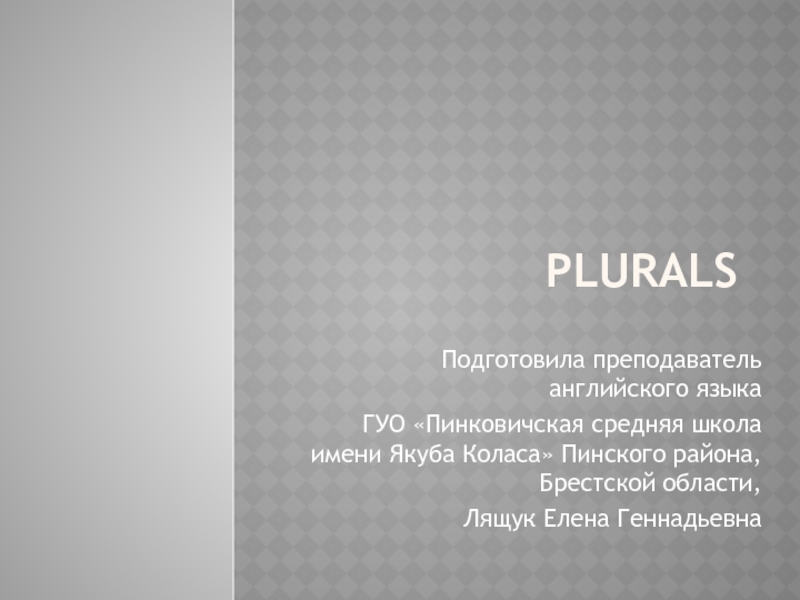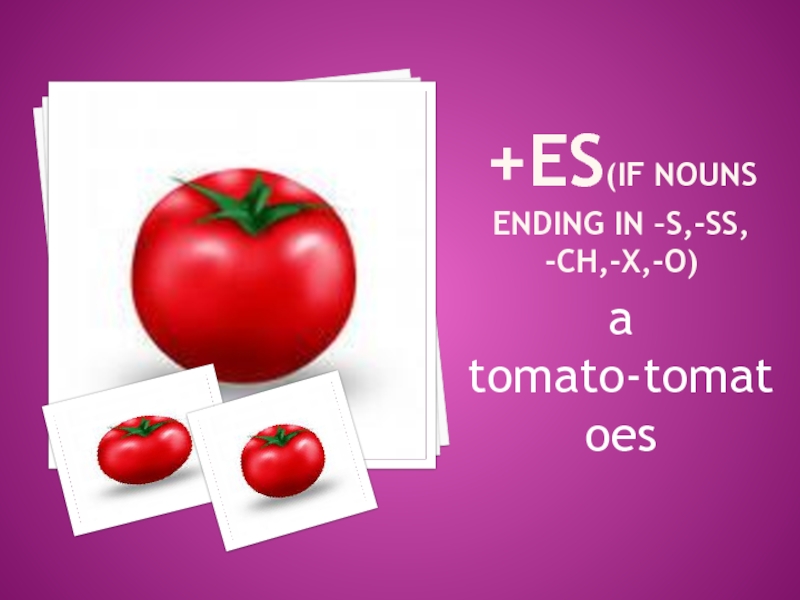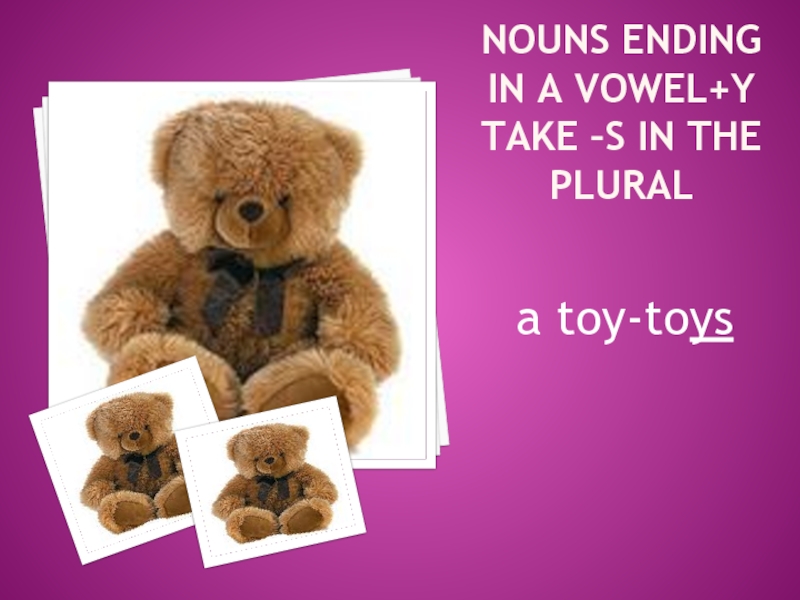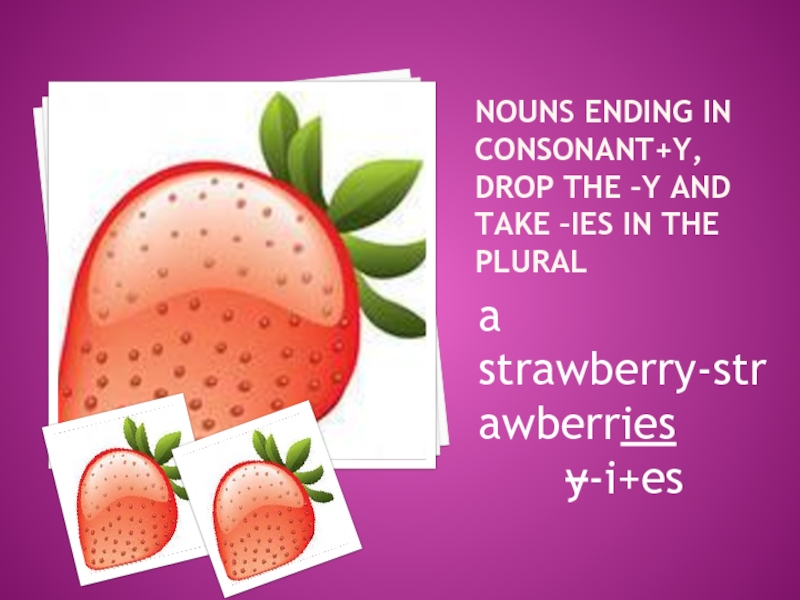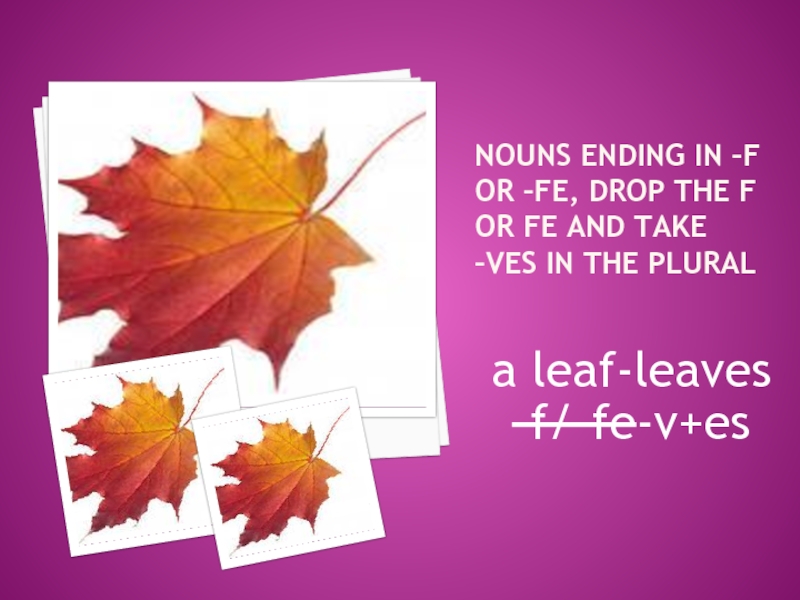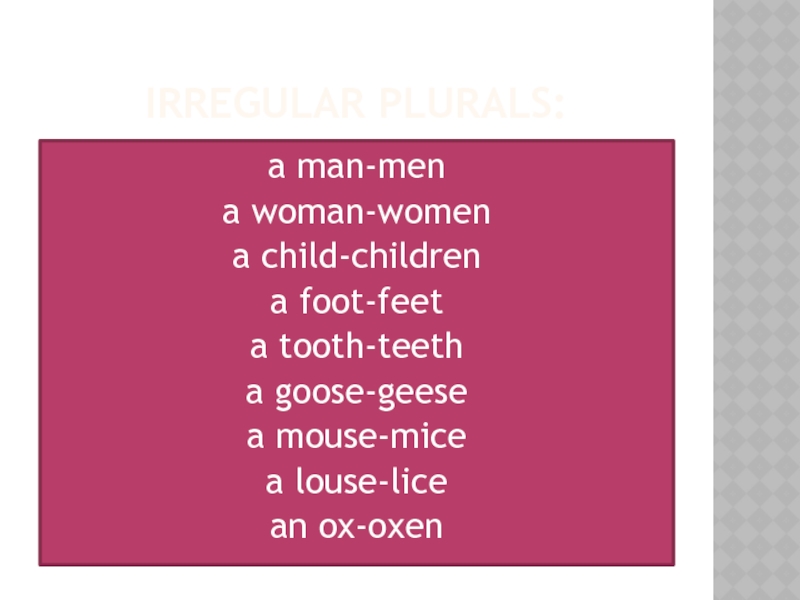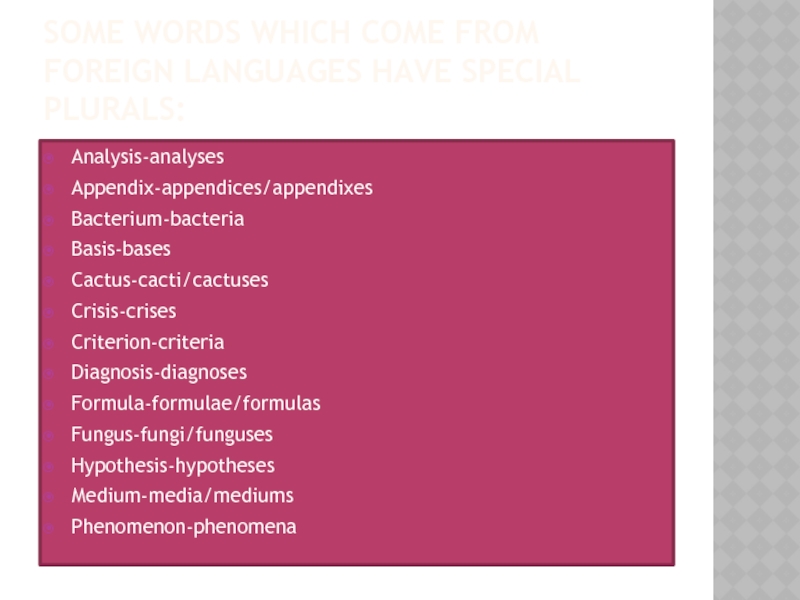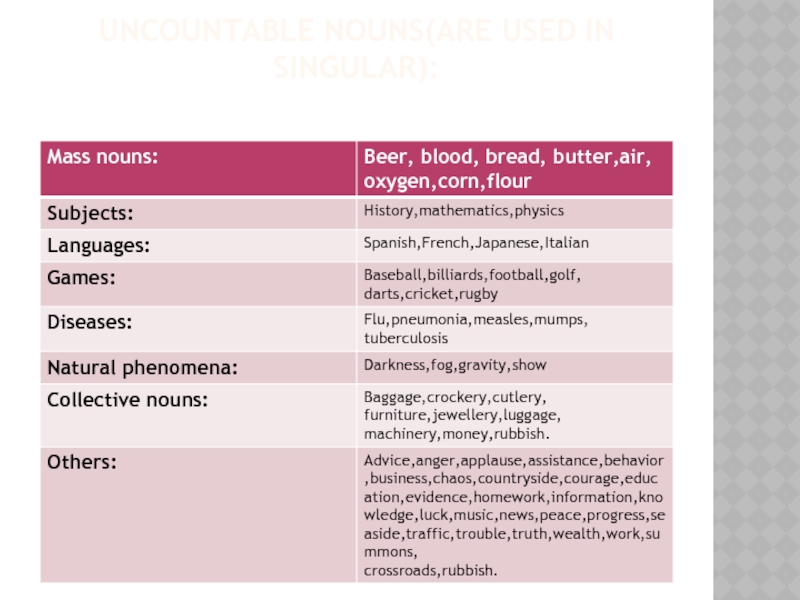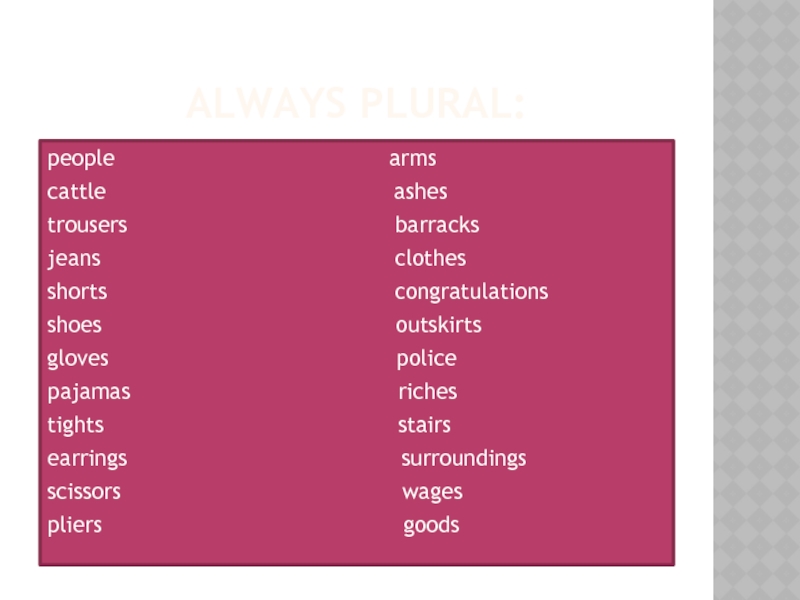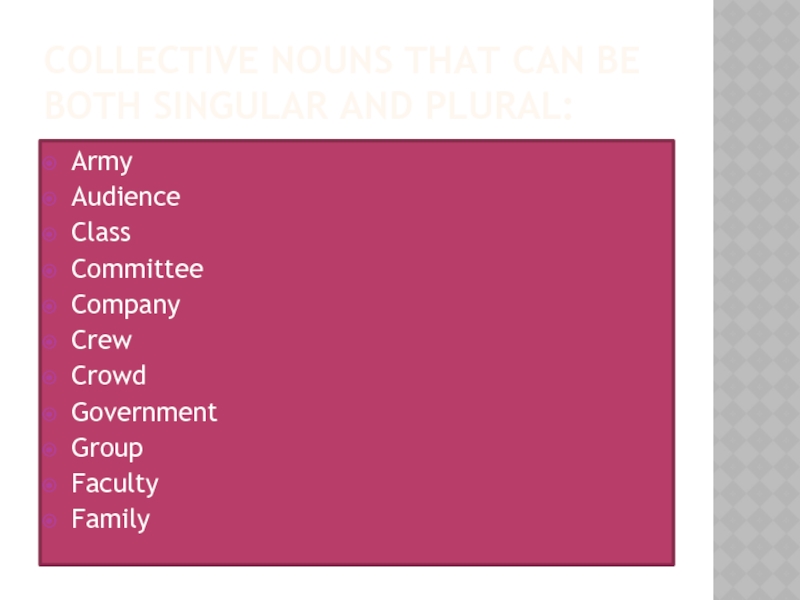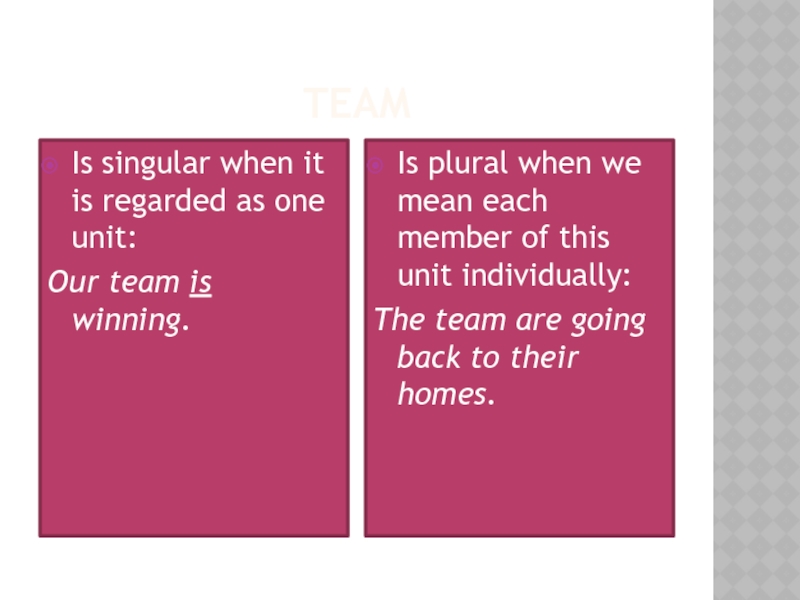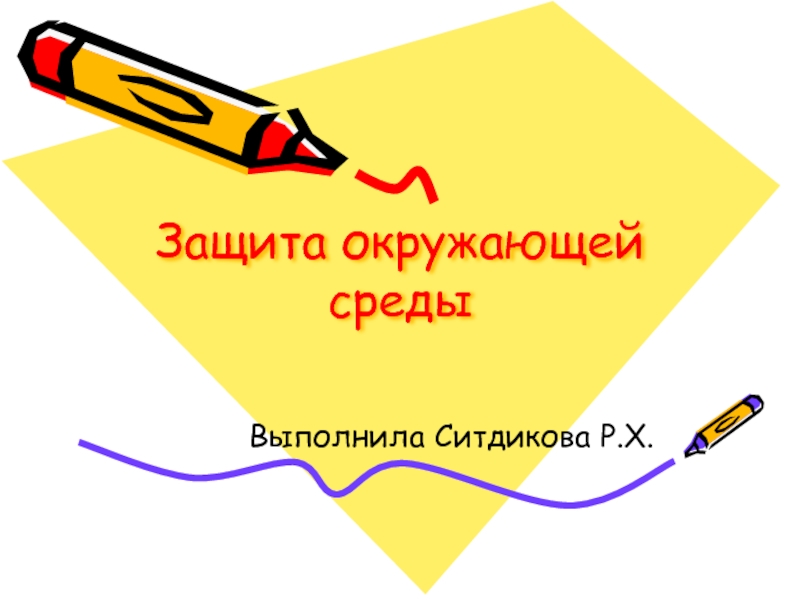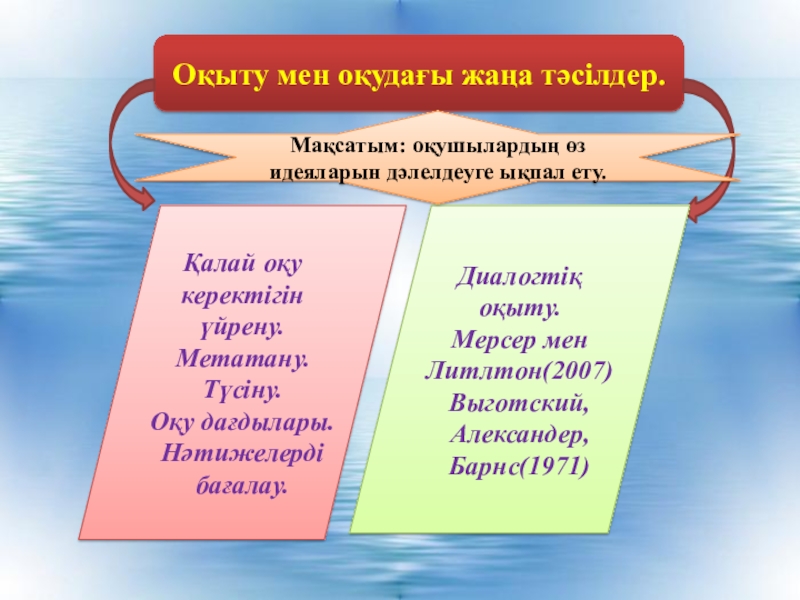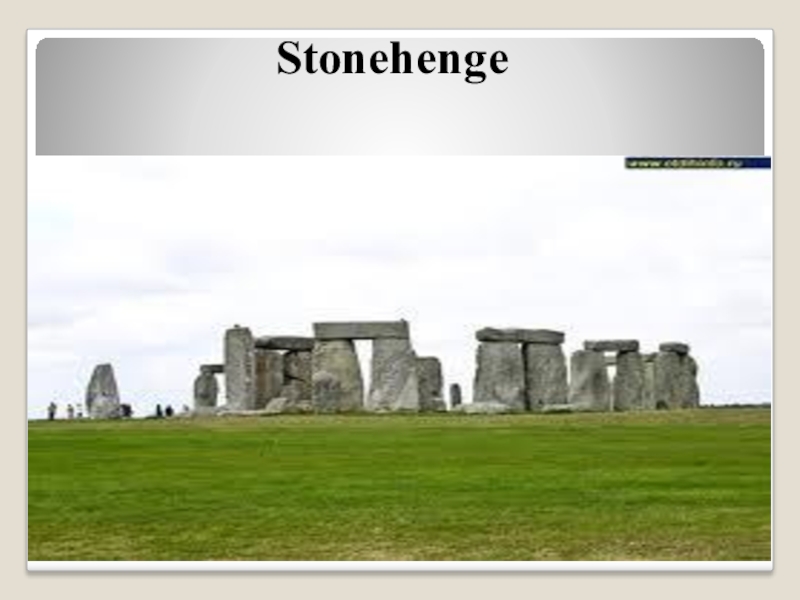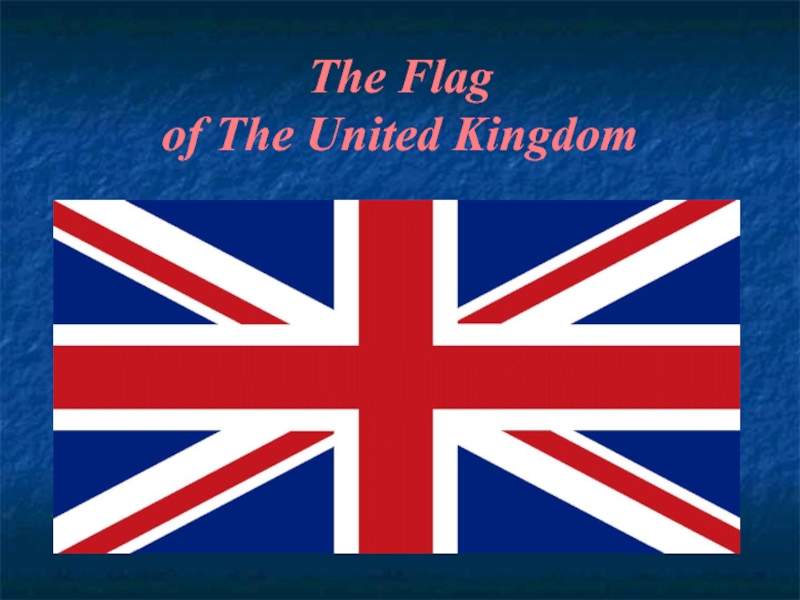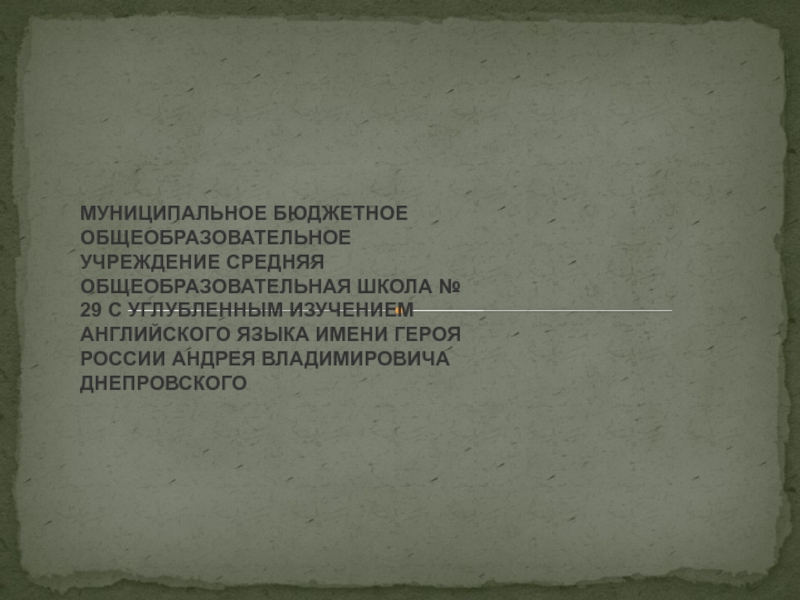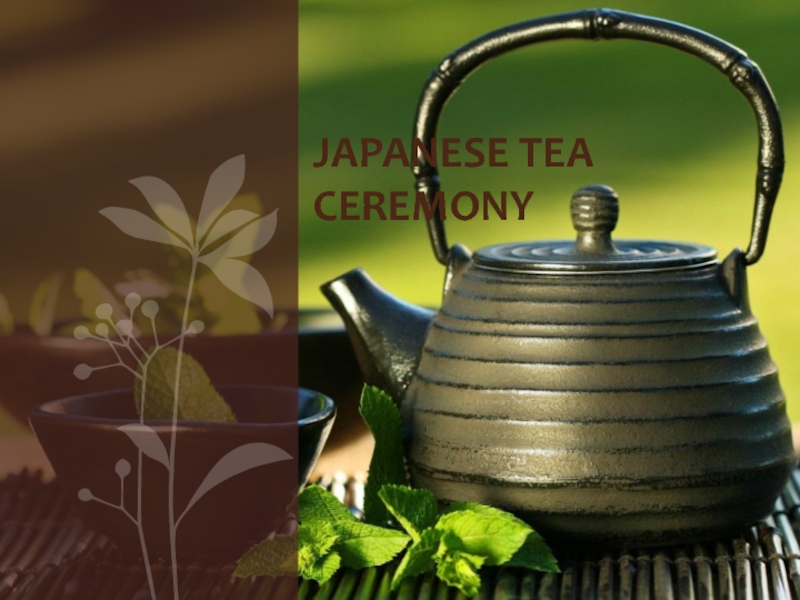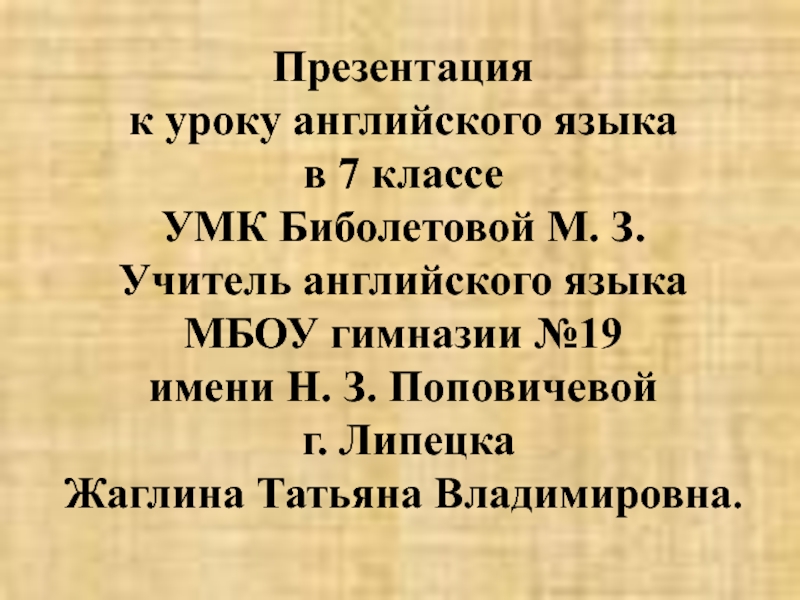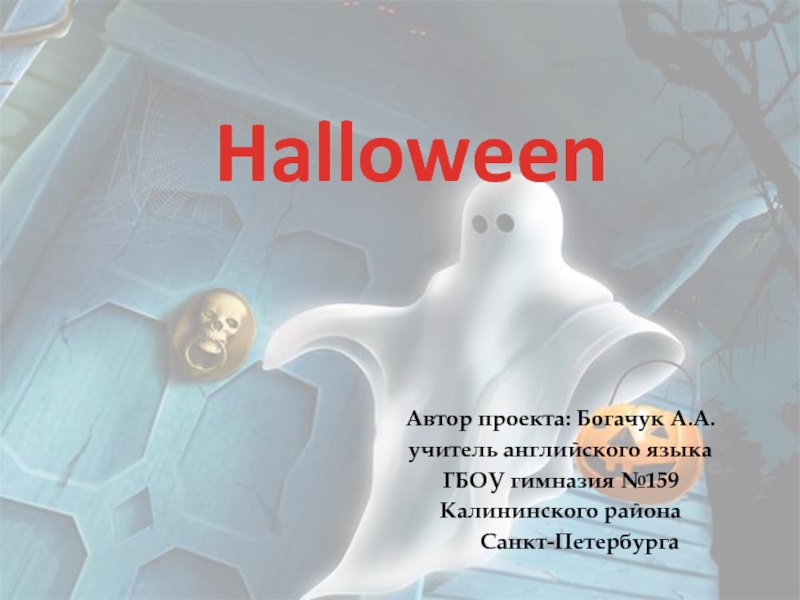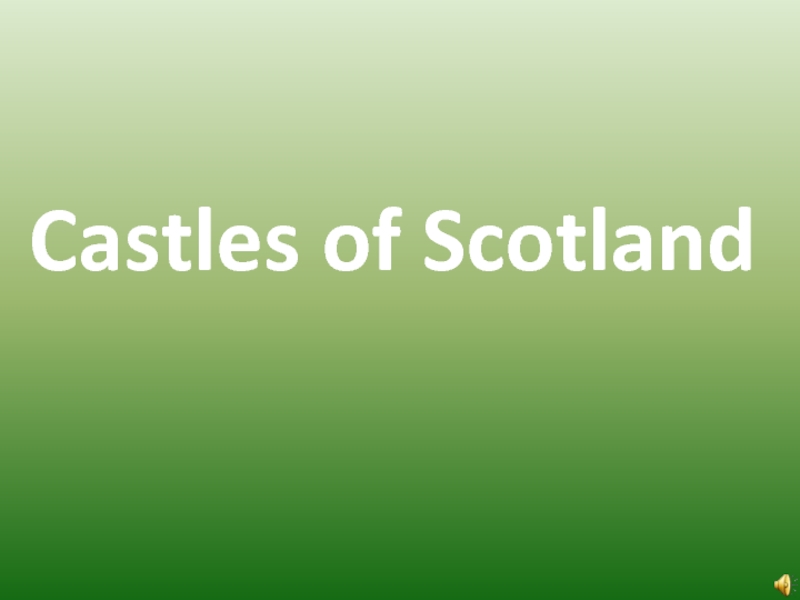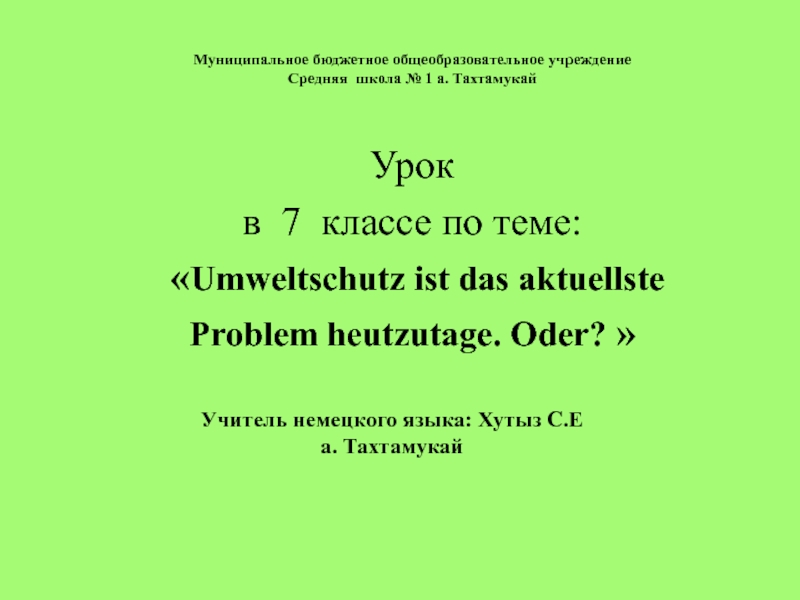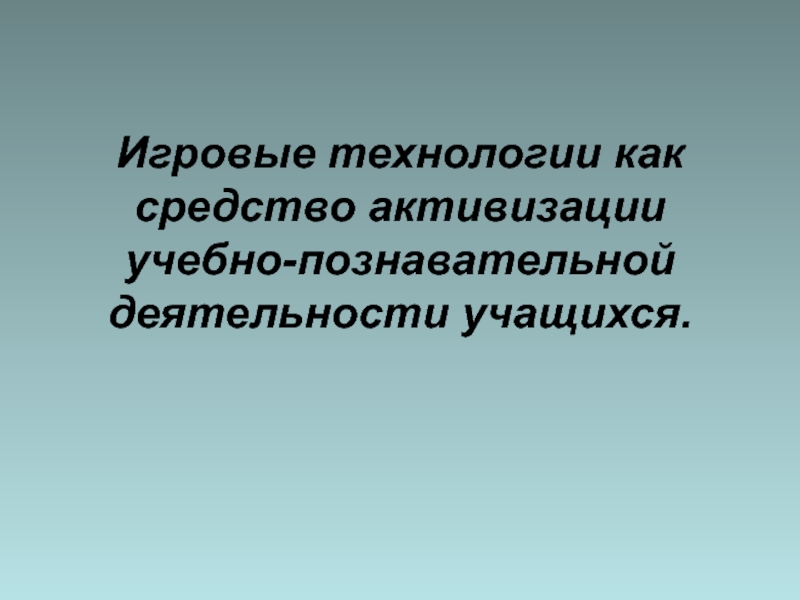Разделы презентаций
- Разное
- Английский язык
- Астрономия
- Алгебра
- Биология
- География
- Геометрия
- Детские презентации
- Информатика
- История
- Литература
- Математика
- Медицина
- Менеджмент
- Музыка
- МХК
- Немецкий язык
- ОБЖ
- Обществознание
- Окружающий мир
- Педагогика
- Русский язык
- Технология
- Физика
- Философия
- Химия
- Шаблоны, картинки для презентаций
- Экология
- Экономика
- Юриспруденция
Множественное число существительных (PLURALS)
Содержание
- 1. Множественное число существительных (PLURALS)
- 2. +san apple-apples
- 3. +ES(if nouns ending in –s,-ss, -ch,-x,-o)a tomato-tomatoes
- 4. BUT:radio-radiospiano-pianosphoto-photosrhino-rhinoshippo-hipposvideo-videos
- 5. Nouns ending in a vowel+Y take –s in the plural a toy-toys
- 6. Nouns ending in consonant+y, drop the –y and take –ies in the plurala strawberry-strawberriesy-i+es
- 7. Nouns ending in –f or –fe, drop
- 8. BUT:chiefsroofssafescliffsbeliefsscarf(ves)wharfs(ves)dwarfs(ves)hoofs(ves)
- 9. IRREGULAR PLURALS:a man-mena woman-womena child-childrena foot-feeta tooth-teetha goose-geesea mouse-micea louse-licean ox-oxen
- 10. SOME NOUNS HAVE THE SAME singular and plural forms:a fish-fisha deer-deera sheep-sheepa trout-trouta swine-swinean aircraft-aircrafta means-means
- 11. Some words which come from foreign languages have special plurals:Analysis-analysesAppendix-appendices/appendixesBacterium-bacteriaBasis-basesCactus-cacti/cactusesCrisis-crisesCriterion-criteriaDiagnosis-diagnosesFormula-formulae/formulasFungus-fungi/fungusesHypothesis-hypothesesMedium-media/mediumsPhenomenon-phenomena
- 12. Noun+preposition+noun, we add –s to the first noun a mother-in-law- mothers-in-law
- 13. If the first word is man or womana woman-doctor- women-doctors
- 14. Noun+adverb, we add –s to the first wordpasser-by-passers-by
- 15. If there is no noun-stem in the compound –s is added to the last elementForget-me-not-forget-me-nots
- 16. Uncountable nouns(are used in singular):
- 17. Always plural:people
- 18. A group of english nouns that can
- 19. Collective nouns that can be both singular and plural:ArmyAudienceClassCommitteeCompanyCrewCrowdGovernmentGroupFacultyFamily
- 20. TEamIs singular when it is regarded as
- 21. Russian nouns that are always plural in russian but are singular and plural in English.
- 22. Скачать презентанцию
+san apple-apples
Слайды и текст этой презентации
Слайд 1PLURALS
Подготовила преподаватель английского языка
ГУО «Пинковичская средняя школа имени Якуба Коласа»
Пинского района, Брестской области,
Слайд 6Nouns ending in consonant+y, drop the –y and take –ies
in the plural
a strawberry-strawberries
y-i+es
Слайд 7Nouns ending in –f or –fe, drop the f or
fe and take –ves in the plural
a leaf-leaves
-f/-fe-v+es
Слайд 9IRREGULAR PLURALS:
a man-men
a woman-women
a child-children
a foot-feet
a tooth-teeth
a goose-geese
a mouse-mice
a louse-lice
an
ox-oxen
Слайд 10SOME NOUNS HAVE THE SAME singular and plural forms:
a fish-fish
a
deer-deer
a sheep-sheep
a trout-trout
a swine-swine
an aircraft-aircraft
a means-means
Слайд 11Some words which come from foreign languages have special plurals:
Analysis-analyses
Appendix-appendices/appendixes
Bacterium-bacteria
Basis-bases
Cactus-cacti/cactuses
Crisis-crises
Criterion-criteria
Diagnosis-diagnoses
Formula-formulae/formulas
Fungus-fungi/funguses
Hypothesis-hypotheses
Medium-media/mediums
Phenomenon-phenomena
Слайд 15If there is no noun-stem in the compound –s is
added to the last element
Forget-me-not-forget-me-nots
Слайд 17Always plural:
people
arms
cattle ashes
trousers barracks
jeans clothes
shorts congratulations
shoes outskirts
gloves police
pajamas riches
tights stairs
earrings surroundings
scissors wages
pliers goods
Слайд 18A group of english nouns that can be used as
countable or uncountable with a difference in meaning:
Слайд 19Collective nouns that can be both singular and plural:
Army
Audience
Class
Committee
Company
Crew
Crowd
Government
Group
Faculty
Family
Слайд 20TEam
Is singular when it is regarded as one unit:
Our team
is winning.
Is plural when we mean each member of this
unit individually:The team are going back to their homes.
Теги
